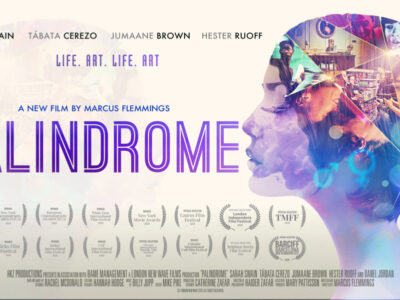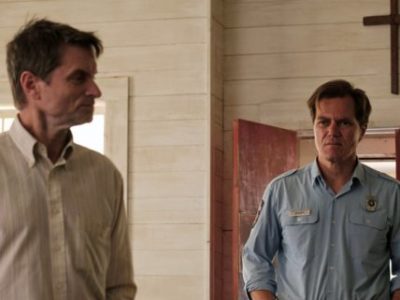A Pretentious & Self-Aware Review of Assassination Nation
 *This review is simply a hot take a mere hour after viewing this film, but I think this is a film I’ll be contemplating for quite a while. Hopefully I’ll write something later on after I’ve let the film sit with me for a longer period of time. *
*This review is simply a hot take a mere hour after viewing this film, but I think this is a film I’ll be contemplating for quite a while. Hopefully I’ll write something later on after I’ve let the film sit with me for a longer period of time. *
(Requisite Experiential Opener from a white, straight man):
I saw the trailer for this film one time before today. I had never heard of it and I didn’t know anything about it. However, there were cues within the trailer that made me think that it would strike all the chords I like in genre film. I did not look any further into the film after I watched whatever (apparently) forgettable film I paid to see afterward. Needless to say, I walked into an 11:10 am screening in Tulsa, OK with little to no expectations. Two other guys—seemed to be friends—were in the theater. That was all. I don’t know what intrigue brought them to that film at that time of morning and I didn’t ask. I wasn’t even sure what specifically made me put this down on my review schedule other than an ambiguous gut instinct based on a trailer. There we sat. Three white guys. I doubt any of us actually knew what we were about to see.
(The Requisite Struggle to transition from Experiential Tome to Summary of Film):
I partly wish I had been sitting on the same row as the two other guys in the theater because I wonder what looks would have been exchanged between us during the opening credits, the split screens, the revelations and the brutal, blood-splattered finale. Oh, and as the trigger warnings blaring at the beginning of the film suggested, the fragile male egos that would be displayed in the film. It’s hard to summarize this film because, on one hand, it is a blatant political statement turned stylish, American Kinji Fukasaku knockoff, but in between the politics and the explicit behavior shown throughout the film is a message that feels like the actual point of the film cleverly hidden in plain sight.
 This is, however, a film about the threat of our internet footprints being brought to the light by some external person who wants to watch the world burn. The town of Salem turns against one 18-year-old girl—and her three friends—accused of being the hacker behind the leak which has led to the destruction of the town’s denizens. While that is a fair representation of the main thrust of the film, it is really only the last third of it. The other two-thirds is tense build-up, wry commentary on the social media age, the objectification of women and the masks that we wear to hide who we actually are. Quite literally once every person’s secrets are out for perusal, those enraged begin to wear actual masks to hide their identity as they turn to violence against the perceived hackers—really, whoever they want to hurt. “Hacker” in the parlance of this film is just as arbitrary and unfocused as “terrorist” is in modern American policy. (There is even a waterboarding scene!)
This is, however, a film about the threat of our internet footprints being brought to the light by some external person who wants to watch the world burn. The town of Salem turns against one 18-year-old girl—and her three friends—accused of being the hacker behind the leak which has led to the destruction of the town’s denizens. While that is a fair representation of the main thrust of the film, it is really only the last third of it. The other two-thirds is tense build-up, wry commentary on the social media age, the objectification of women and the masks that we wear to hide who we actually are. Quite literally once every person’s secrets are out for perusal, those enraged begin to wear actual masks to hide their identity as they turn to violence against the perceived hackers—really, whoever they want to hurt. “Hacker” in the parlance of this film is just as arbitrary and unfocused as “terrorist” is in modern American policy. (There is even a waterboarding scene!)
Other films that attempt to weld so many styles and tones together have failed, but Assassination Nation moves gracefully through the opera of dystopia at the narrative’s core. Yet it is not the science fiction visionary dystopia we are used to. There are no ravaging diseases or overarching all-seeing eye. The dystopia in the mind of this film is one that actually feels quite possible within the state of American society now. It is the dystopia of un-closeted skeletons. The brutal discrepancy and hypocrisy hiding in the spaces between our social media posts and our web browser histories.
(Requisite Analysis of the Film by a critic who just saw the film an hour ago or two days ago or something…):
 The style of this film was seamless in its usage of text messages on the screen, Reddit threads, and other paraphernalia of the internet wasteland. Yet it was not attempting to be an Unfriended or Searching. It didn’t want to utilize the technology in the filmmaking, but, instead, to interrogate it. Those films give assent, ultimately, to a positive view of social media as a way to frame modern human existence in making us literally live in the screen by which we are already subsumed. Assassination Nation, however, detaches itself and observes it curiously from behind the backs of the characters. They use the technology extensively, but the film never becomes the medium itself. The existential dread of those two films is ratcheted up here without giving in to the double-edged sword of the gimmick. Think more along the lines of Clueless, The Purge franchise and the compelling balance of voyeurism and cinematic technique of a director like Brian DePalma or David Cronenberg.
The style of this film was seamless in its usage of text messages on the screen, Reddit threads, and other paraphernalia of the internet wasteland. Yet it was not attempting to be an Unfriended or Searching. It didn’t want to utilize the technology in the filmmaking, but, instead, to interrogate it. Those films give assent, ultimately, to a positive view of social media as a way to frame modern human existence in making us literally live in the screen by which we are already subsumed. Assassination Nation, however, detaches itself and observes it curiously from behind the backs of the characters. They use the technology extensively, but the film never becomes the medium itself. The existential dread of those two films is ratcheted up here without giving in to the double-edged sword of the gimmick. Think more along the lines of Clueless, The Purge franchise and the compelling balance of voyeurism and cinematic technique of a director like Brian DePalma or David Cronenberg.
As a person who fits within every conceivable majority group in this country, I felt laid bare by the end of the film. Before me was the wreckage of all of my active and passive complicity in the destruction of the lives of women and people of color and people within the LGBTQ community. The final monologue from our heroine, Lily, showcases the state of Imago Dei within a severely broken system. Those in the majority who set the cultural norms and laws of the land break them in secret while expecting minority groups to follow those rules without exception. It is hypocrisy of the highest order.
That point of the film I brought up earlier? Here is what Assassination Nation is saying to us: if we (majority groups) keep breaking the laws and norms we (majority groups) have put into place and sustained through power while ignoring the voices and the humanity of minority communities, the more we (majority groups) run the risk of making those same voices become weaponized. And because we haven’t shown mercy, they have no justification to show it to us. The more white, straight men suppress the voices of women, people of color, women of color, LGBTQ people, etc., the more likely they are to make their voices known by whatever means is opened to them. When Lily finds the cache of guns at the end, a way is opened up to her. She’ll take it by force. Like she says, “You may kill me, but you can’t kill us all.”
 (Requisite Final Paragraph with all the lines that land the punch of the article…so that the readers can go on about their day and forget this writer’s passionate plea or clever turn of phrase amidst the endless sea of information):
(Requisite Final Paragraph with all the lines that land the punch of the article…so that the readers can go on about their day and forget this writer’s passionate plea or clever turn of phrase amidst the endless sea of information):
The thing is, the whole time I watched the film, I saw clearly how the very people enraged by the revelation of their deepest secrets were the same ones who rigged the system from the beginning. Instead of taking the opportunity to search themselves and honestly deal with their own sin, they decided to keep the clarion call of the cop in the film—“WE ARE GOOD PEOPLE!!”—and blame the people most negatively affected by the system: the four high school girls—two white girls, one black girl and one trans girl—the gay football player, the black principal, etc. This is a lesson to those of us in power: listen for the voices that come from the margins. If we don’t, we can’t blame them for finding any way possible for them to make their voices heard.
(Requisite Lifting of Fingers off the keyboard in utter satisfaction with oneself)







